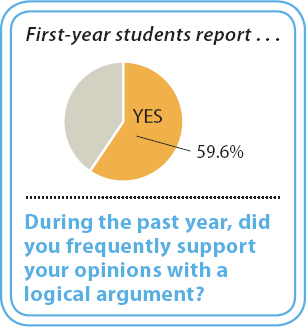Thinking Critically About Arguments
What does the word argument mean to you? If you’re like most people, the first image it conjures up might be an ugly fight you had with a friend, a yelling match you witnessed on the street, or a heated disagreement between family members. True, such unpleasant confrontations are arguments, but the word also refers to a calm, reasoned effort to persuade someone of the value of an idea.

When you think of it this way, you’ll quickly recognize that arguments are central to academic study, work, and life in general. Scholarly articles, business memos, and requests for spending money all have something in common: The effective ones make a general claim, provide reasons to support it, and back up those reasons with evidence. That’s what argument is.
As we have already seen, it’s important to consider multiple points of view, or arguments, in tackling new ideas and complex questions, but arguments are not all equally valid. Good critical thinking involves thinking creatively about the assumptions that might have been left out and scrutinizing the quality of the evidence that is used to support a claim. Whether examining an argument or communicating one, a good critical thinker is careful to ensure that ideas are presented in an understandable, logical way.